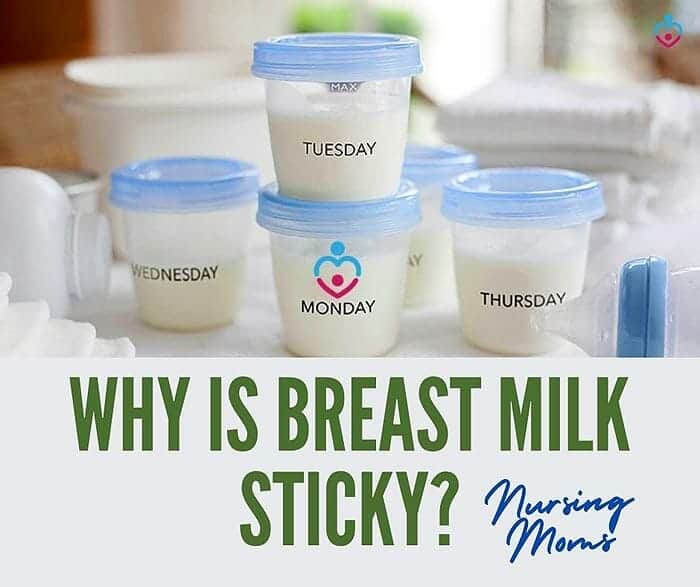
If you are a nursing mother, you most likely realized that your breastmilk has a sticky consistency. Before we dive into why this happens, you have to know that this is normal, and most times, it is no reason for concern. However, all breastmilk is sticky to some degree, and some factors can influence this aspect more or less.
Breastmilk is sticky due to the nutrients it has in it, primarily fatty acids, sugar, hormones, and several vitamins and minerals. Even so, not all breastmilk has the same stickiness level, as several things could impact its texture.
Jump to:
Why is breast milk sticky?
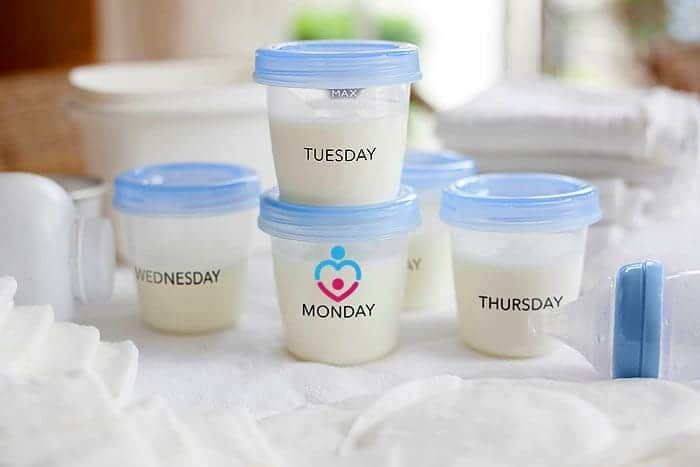
Breastmilk has a sticky consistency due to its components. The mix of hormones, vitamins, minerals, and fatty acids combined with sugars from your body will give your breastmilk a sticky texture. From all its components, though, sugar and fat seem to contribute the most to the stickiness of your breastmilk.
However, the level of the stickiness of your breastmilk varies according to the nursing phase you are in. It is also influenced by the needs your baby has and your daily diet as well. So, not all breastmilk is just as sticky, even if this texture is typical in all cases.
![]()
Aspects that impact the stickiness of your breastmilk
Even if breastmilk is always sticky, it is essential to understand what makes it stickier sometimes compared to other times. Regardless of these aspects, keep in mind that a healthy body will produce just the type of breastmilk your baby needs. So, you don't need to take any measures to make breastmilk that is waterier or, on the contrary, stickier.
Suggested Reading:
![]()
Types of breastmilk you will have according to your nursing phase
Your breastmilk consistency and texture will vary according to your nursing phases. Here are the three main types of breastmilk your body will produce.
- Colostrum : This is the breastmilk your body will start producing after you deliver your baby. Colostrum is highly nutritious and has a darker yellow or even orange color compared to your future breastmilk. This first type of breastmilk is also significantly stickier than others since it is thicker and more concentrated in nutrients.
- Transitional breastmilk: A few weeks after you had your baby, the colostrum will be replaced by so-called transitional milk. This type of milk will be lighter in color and creamier in texture. It will be sticky still but not as sticky as the colostrum milk. When your body starts producing transitional breastmilk, it will also adopt this type of milk to your baby's specific needs.
- Mature breastmilk: The last type of breastmilk is the milk you will produce until the end of the nursing phase, known as mature breastmilk. While this breastmilk is rich in protein. Sugar, fatty acids, vitamins, minerals, and antibodies to help your baby fight potential infections are also more watery. Due to its runnier consistency, the mature breastmilk will not be as sticky as the colostrum or even transitional breastmilk. But it will still have a sticky texture nevertheless.
Suggested Reading:
![]()
Your baby's needs
A natural phenomenon that still intrigues scientists is that a mother's breastmilk will constantly adapt to the baby's needs. So, if your baby gets sick, your body will produce breastmilk richer in antibodies and the minerals and vitamins they need to get better. This ability to adapt the breastmilk to your baby's needs will also modify its texture. Therefore, your breastmilk might be stickier than usual or more watery.
Suggested Reading:
![]()
Your daily diet
What you eat daily will also impact your breastmilk. Your diet has a contribution to the taste, the smell, and the consistency of your breastmilk. For instance, if you eat food rich in sugar and fat, your breastmilk will naturally be sweeter and stickier. Therefore, it is essential to maintain your breastmilk to its natural sticky texture and keep a diet rich in fruits, veggies, and lean meat. Also, make sure you drink plenty of water and avoid junk food as much as possible.
![]()
Things that can impact the fat level of your breastmilk
Since milk fat tends to be one of the main factors responsible for the stickiness of your breastmilk, here are some aspects that might increase the fat level in your milk.
- If you feed your baby or pump your breastmilk sooner than every three hours, your milk will have a higher percentage of fat. So, if you want your milk to be more watery, you can allow your body a bit more time in between feedings or pumping sessions if your baby will still get the meals they need.
- At the same time, if your baby tends to eat more extended periods, for instance, until they empty your breasts, your body will produce fatter milk. This is a common effect for mothers of twins as they have to feed both babies.
- Some studies suggest that breastmilk expressed by hand contains fatter as well, making it stickier. So, if you don't use a pump, hand expressing might be an explanation for stickier milk.
Suggested Reading:
![]()
When should you be concerned if the breast milk is sticky?
Even if all breastmilk is sticky to some degree, it is equally important to know the signs that should get you to see your doctor.
- If you experience intense pain when pumping your milk or when your baby is eating, you should definitely go to your doctor. This could be a sign of blocked ducts or another type of infection that you will need to address.
- If your milk contains any reddish color, this should also send you straight to do doctor to make sure you don't have any serious condition. Even if the red tint in your breastmilk could be due to eating certain foods that have a reddish color, it is always best to check this aspect.
- Another sign that you can't ignore is if your baby refuses your breastmilk after they used to eat it just fine before. This means that something in your breastmilk changed significantly, and you need to get yourself checked.
- If you have any of these symptoms, along with unusual sticky breastmilk, it is a good idea to see your doctor for further investigations. In most cases, there are no objective reasons for concern, but you should never take any risks when it comes to your health and your baby's health.
Suggested Reading:
![]()
Your breastmilk's stickiness is typical and a good sign that it contains all the nutrients and vitamins it needs to contain to offer your baby the best meal. However, even in these circumstances, there are different aspects that you need to take into account when you evaluate the quality of your breastmilk.
While it is not a reason for concern if you have stickier breastmilk combined with other symptoms such as pain or discomfort during nursing, checking your doctor might be a great idea.
![]()




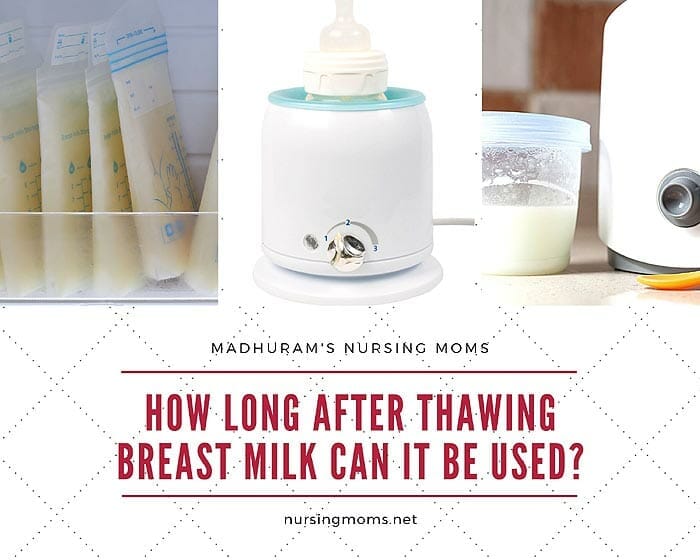
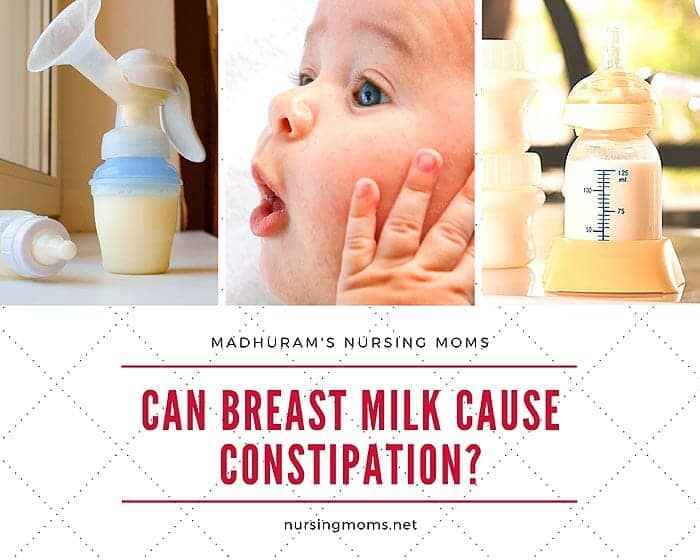

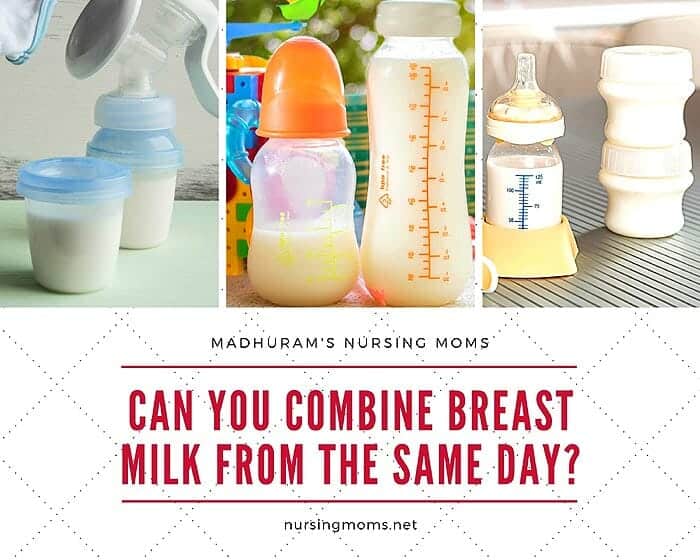
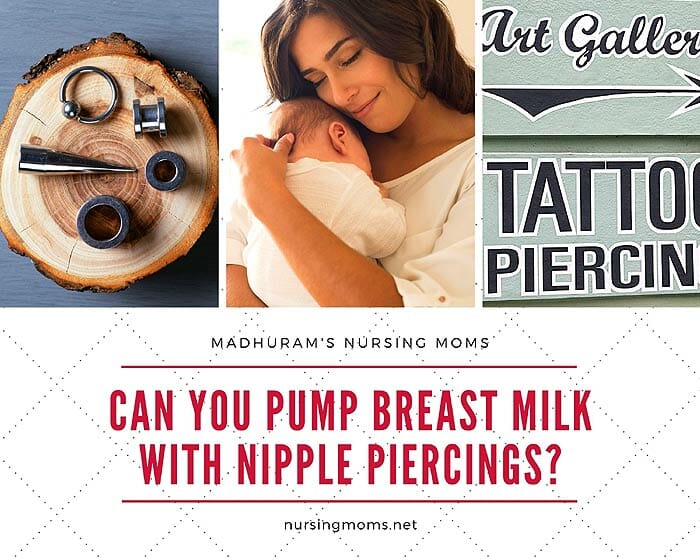
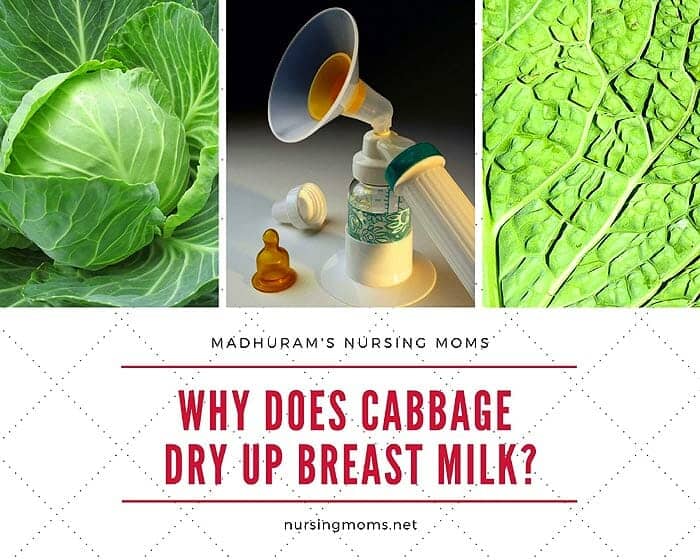
Leave a Reply